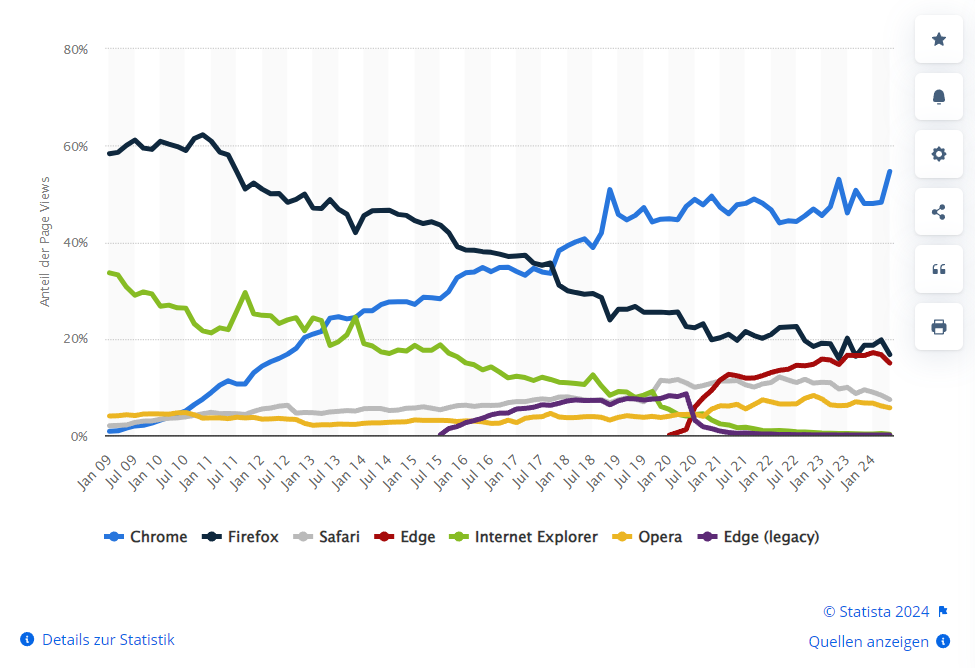Google has surprisingly decided to continue allowing third-party cookies in its Chrome browser. This decision has far-reaching implications for the advertising industry and online marketing strategies.
After browsers like Safari and Firefox went on a strict cookie diet to ensure user security, Google is not following suit despite its plan announced in 2020. The Chrome browser was originally supposed to eliminate third-party cookies by 2022. Now, however, advertisers can still benefit from tracking in Chrome.
Germany’s most popular browser
With 60%, Chrome is by far the most popular browser in Germany – and now officially with cookies. In Germany, the Google browser had a market share of 54.6% among desktop and notebook users. The competition follows far behind: Mozilla Firefox is in second place with 16.7%, Microsoft’s Edge browser is in third place with around 15%, and Apple’s Safari browser comes in at 7.4%. Various versions of Chrome at the top of the most popular browserswhich is why this breakdown is hardly surprising.

Third-party cookies, which are not set by the website visited itself but by advertising service providers, enable the creation of user profiles and targeted advertising. They are a key tool for the advertising industry as they enable users to be addressed effectively and personally.
Google justified the decision to continue to allow third-party cookies with strong opposition from the advertising industry and concerns from regulators. They feared that blocking third-party cookies could distort competition because Google’s own advertising products could be favored. A ban might have increased Google’s competitive advantage because its own advertising products would be favored. Google explained in a blog post that users should decide for themselves whether they want to allow or block third-party cookies. This decision should be made consciously and improve user data protection.
This is how the competition behaves
While Google Chrome continues to allow third-party cookies, Safari and Firefox block them by default. However, these browsers have a smaller market share, which limits the reach and impact of their privacy measures. Safari and Firefox also offer users the option to enable third-party cookies, but the default setting is to block. Firefox justifies its tracking protection in the cookie policy on the website as follows:
Enhanced Tracking Protection works behind the scenes to prevent companies from creating profiles of you based on tracking your activity on websites – and are often created without your knowledge or consent. Any information contained in these profiles can be sold and used for purposes you never know about and may not even want.
For advertisers, this means they need to adapt their strategies to the different privacy measures of browsers. Chrome users can still be tracked via third-party cookies, while Safari and Firefox require alternative methods.
What is important for marketers?
Google’s decision to continue to allow third-party cookies allows advertisers to maintain their current strategies for the time being. Nevertheless, marketers should keep an eye on developments in the browser landscape and regulatory measures – in particular, developments surrounding Google’s Privacy Sandbox could play a role in this context in the future.
In summary, Google remains true to its previous practice and allows third-party cookies to continue to be active in Chrome. This still offers the advertising industry the opportunity to place effective and personalized advertising in Chrome. Nevertheless, given the competitive behavior, it makes sense to prepare for possible future changes and test alternative advertising methods as users become increasingly aware of the issue of targeting and data security.
The end of third-party cookies?
Not yet, because Google will not stop support until 2024
Source: onlinemarketing.de


